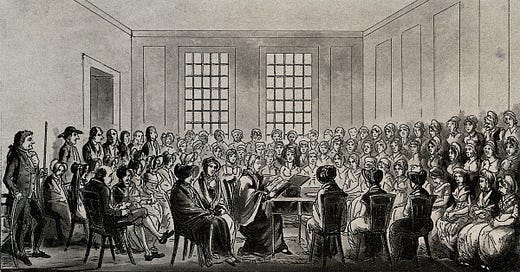Why Have British Feminists Successfully Resisted the Erasure of Sex?
The history of British feminism and the meaning of "woman"
The public debate around the meaning of “woman” looks a lot different in the UK compared to the US. In this week’s original, Susanna Rustin, author of Sexed: A History of British Feminism, traces some of the historic influences that have made British feminism more resistant to gender ideology.
Why Have British Feminists Successfully Resisted the Erasure of Sex?
Susanna Rustin
British feminists have mounted some of the strongest resistance in the world to the demand that self-identified gender should override biological sex. Over the last decade, the UK has seen a revival of grassroots campaigning for women’s sex-based rights, with a raft of new groups, publications, and conferences.
But why Britain?
This Week in Sex-Realist Feminism: Taylor Swift's Sexual Revolution, Sex Trafficking in America, and Invisible Work
This week: Patricia Snow on Taylor Swift and the sexual revolution, Madeleine Rowley on the explosion in sex trafficking throughout the US, and Ivana Greco and Elliott Haspel’s new report on the support stay-at-home parents need. Plus: strangling during sex, a family-friendly culture, parents fight for custody of their gender-confused child—and more!
From the Archives:
Nadya Williams (Williams has a new book, Mothers, Children, and the Body Politic: Ancient Christianity and the Recovery of Human Dignity, just released this week).
A Revolutionary Equality: Women in the Third-Century Church
Nadya Williams
“While the culture heroes of the Roman world had always been powerful military commanders and emperors, Christianity promoted heroes who looked very different from the Roman ideal—weak, female, and sometimes even enslaved, like Felicity.”






